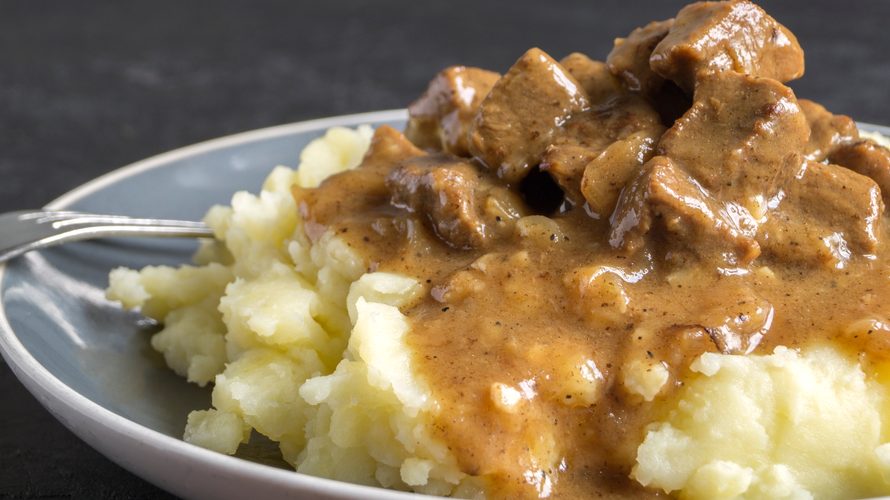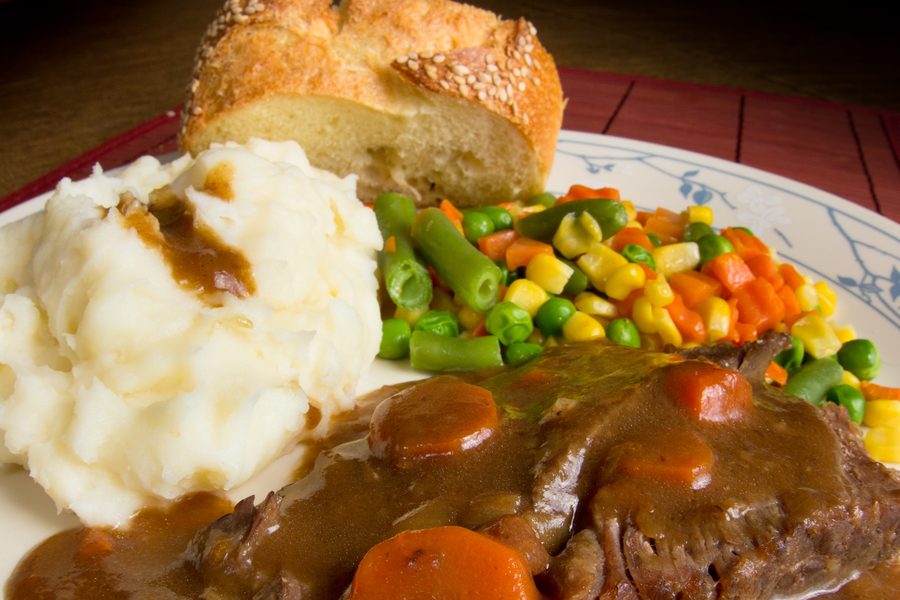
Southern Diet Is the Culprit Behind Hypertension Among African-Americans, Health Experts Claim

According to the health experts, there’s a huge discrepancy when it comes to the high blood pressure rates between Americans and African-Americans. The scientists believed the latter population was more prone to high blood pressure due to their Southern food diet.
The Claim
According to the University of Alabama in Birmingham researchers, most southern cuisine relies heavily on fried foods, processed meats, egg and egg dishes, high-fat dairy foods, bread, and sugar-sweetened beverages which can trigger inflammation and chronic diseases, including high blood pressure or hypertension. The study also revealed how heart disease became one of the biggest culprits in the lowering lifespan of the U.S. citizens. This prompted the scientists to investigate the high-blood pressure rates in African-American and American populations.

Julia Sedaeva/Shutterstock
The study found that most African-American people tend to eat more Southern cuisine like country ham, cornbread, and sugary drinks which contributed to their rising high blood pressure rates. According to the lead author George Howard, the difference between the prevalences of high blood pressure between the two populations was immense. As they conducted the study on around 6,900 participants across the country aging 45 years and above, around 50% of the American population had hypertension, while around 70% of African-Americans were diagnosed with hypertension.
The research team also drilled down the crucial clinical and social factors that contributed to the hypertension rates namely:
- Their Educational Attainment.
- Average Annual Income.
- Adherence to Southern Diet
- BMI.
- Sodium to Potassium rates in their Diet.
- Exercise Levels
- Waist Circumference
- Depression
- Stress.
The Risks.
Out of all the participants, around 46% of African-American people developed high blood pressure compared to the 33% for Americans. The study also shows how eating the Southern diet increased an individual’s risk of high blood pressure up to 51.6%. Howard reiterates though that there are still other variables involved that contribute to hypertension aside from having the Southern diet.
Howard adds how the combination of unhealthy foods in the diet, along with lack of exercise or a sedentary lifestyle, as well as limitation of access to food containing antioxidants, minerals, and vitamins make the lifestyle less healthy.

littlenySTOCK/Shutterstock
The researchers also linked the diet study to cancer, coronary heart disease, kidney disease, stroke, and cognitive decline.
Howard says health experts can consider some interventions to increase the access to healthy foods, especially to African-Americans while limiting the consumption of fried foods and processed meats. He encourages the scientific community to work harder, especially since the follow-up tests they’d conducted in the study weren’t as good as they hoped. According to him, only around 50% of the participants returned to conduct follow-up tests. One-fifth of the participants, unfortunately, died due to hypertension and other chronic illnesses. Meanwhile, 30% of the participants withdrew.
The Lifestyle Approach
An independently qualified dietician Kristen Kizer told Newsweek she was struck by how the diet was more important in basing their hypertension than other important factors. According to her, the Southern diet already existed since the 1990s when the original Dietary Approaches to Stop Hypertension (DASH) study came out.
The DASH diet promotes high consumption of fresh fruits, vegetables, whole grains, and lean meat, none of which are rich in a Southern Diet. She adds the researchers should also follow other influences or factors that affect the participants’ dietary habits to modify their diet within their comfort and motivate them to pursue an active lifestyle.

Slatan/Shutterstock
According to Kizer, an individual’s diet is very cultural and personal. It is often impacted by an individual’s preference, cost, convenience, availability of foods, nostalgia, as well as the emotions associated with their dietary habits.
Kizer advises the public to stick to a diet rich in vegetables, fruits, healthy fats, whole grains, and fat-free and low-fat dairy products (e.g. milk, cheese, yogurt, organic soy beverages) and a variety of lean meat like seafoods, eggs, beans, seed, and nuts to fill your body with healthy foods. You can also use plant-based oils like canola or olive oil to prepare your food. Lastly, she advises everyone to limit their salt intake by avoiding processed foods.
More in Health & Well-being
-
`
Why Adults With ADHD Are 3x More Likely to Develop Dementia
We have all heard of ADHD, haven’t we? Hyper kids, distractions galore, restless minds – these are images we often associate...
December 11, 2023 -
`
Signs of Emotional Connection in Relationships
Building a strong connection with someone isn’t just about being in sync or sharing hobbies—it’s about that deeper bond, where you...
December 4, 2023 -
`
Hollywood’s Shortest Marriages: Britney Spears, Carmen Electra & More!
In the glitzy world of Hollywood, where fairy tales often unfold on the silver screen, there exists a flip side—a realm...
December 3, 2023 -
`
The Surprising Benefits of Unplugging
In today’s hyper-connected world, where we are constantly bombarded with notifications, messages, and the allure of social media, disconnecting may seem...
November 26, 2023 -
`
How “Looking Your Best” Improves Our Wellbeing
Most of us have had moments standing in front of our closet, deciding on an outfit for the day. And we...
November 15, 2023 -
`
Therapy? Medication? What Are the Treatments for PTSD
Post-Traumatic Stress Disorder (PTSD) is a common after-effect of traumatic events. It can be a debilitating condition, but the good news...
November 7, 2023 -
`
Meet the Woman Who ALMOST Married Barack Obama
Barack Obama’s life has been a captivating narrative, often told and retold, with each revelation adding layers of intrigue to his...
November 5, 2023 -
`
The Rise of Caviar Bumps, Thanks to Gen Z
In an intriguing twist of culinary culture, millennials and Gen Zers are drawn to an unusual indulgence – fish eggs, or...
October 28, 2023 -
`
Everything You Need to Know About Acid Reflux, Heartburn and GERD
Ever had that burning-in-the-chest sensation after a meal? Or perhaps you have lain awake at night with an odd sour taste...
October 17, 2023















You must be logged in to post a comment Login